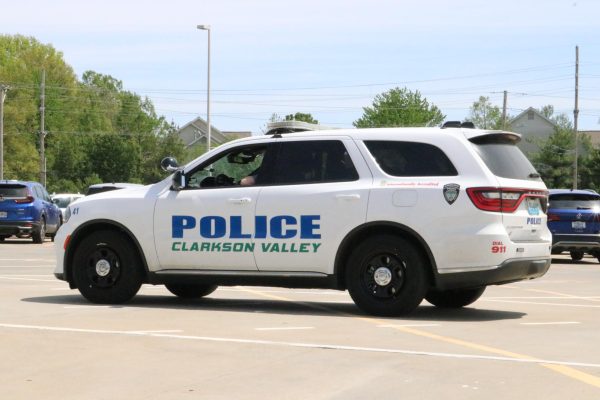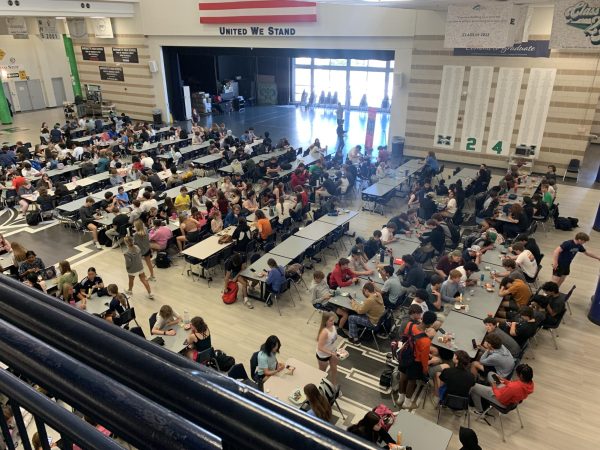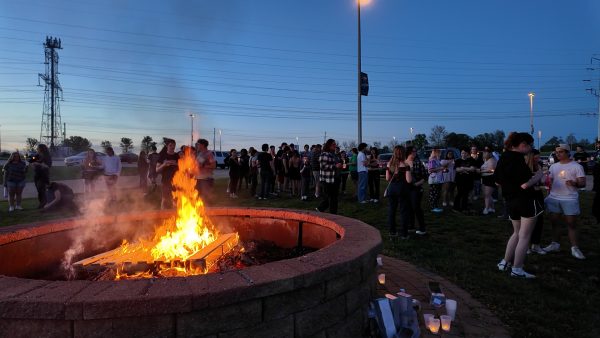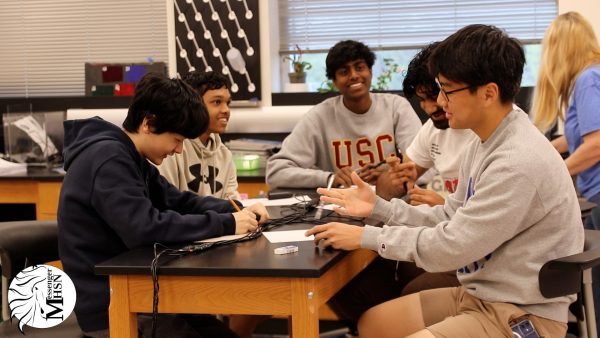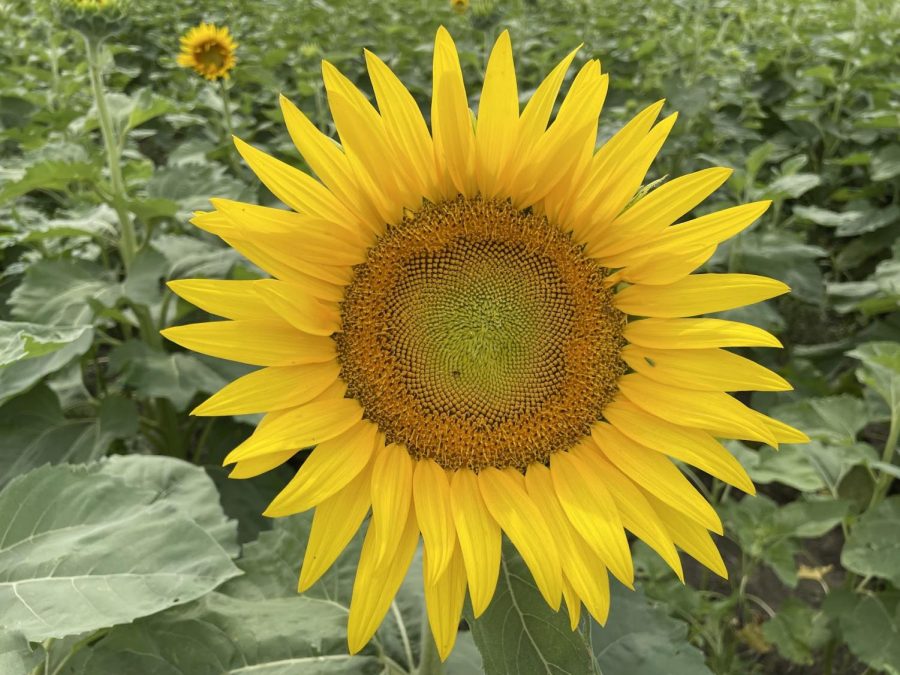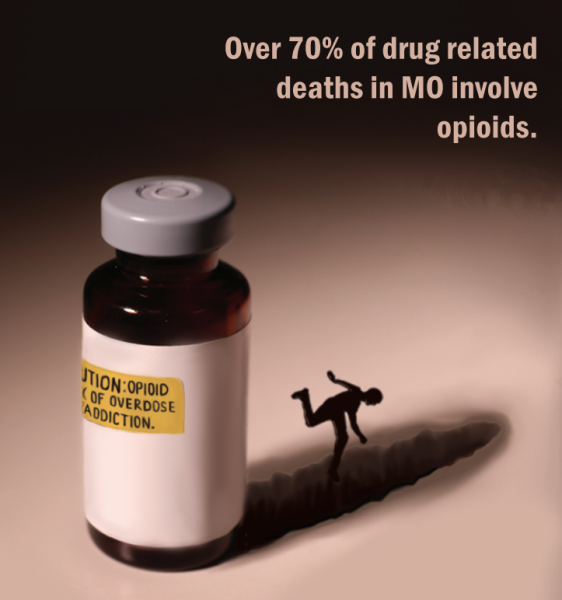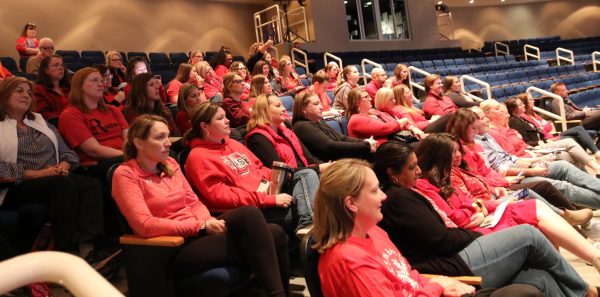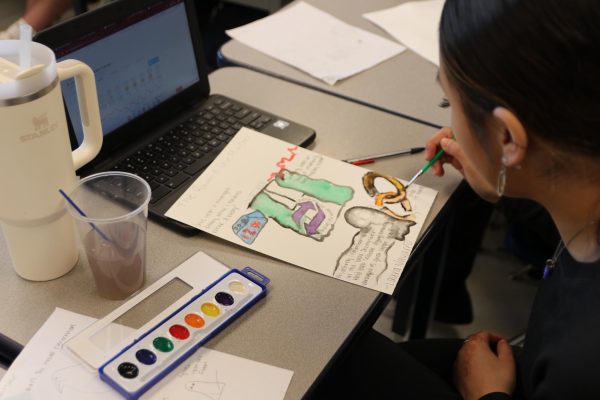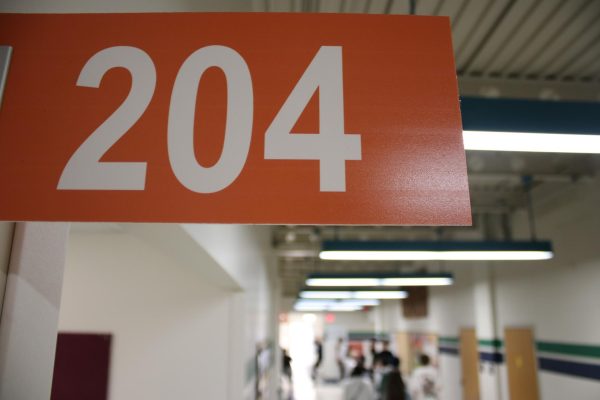Families Feel Effects of Russia-Ukraine Conflict
Media by Emily Jorgensen
A sunflower is the National flower of Ukraine and a symbol of resistance against Russian forces.
Loud explosions have taken over the once peaceful Romanian village where Yana Dragnev, junior, remembers visiting relatives.
A recent Russian invasion of Ukraine has left many eastern European cities in a similar state.
Dragnev’s grandparents went to California for a vacation just before the conflict began, and they have remained there in case Romania becomes threatened by Russian forces.
“Since they live in a community that is close to bordering Ukraine, they could be amidst the conflict and all the suffering that comes with war,” Dragnev said.
Their community also has been subject to misleading propaganda downplaying the war, Dragnev said, and explosions have been falsely identified as parties.
Dragnev said there is concern about what their grandparents would be coming back to should Russia invade or war pass over the land.
Dragnev is one of many MHS students and families feeling the effects of this international conflict.
Oksana Tyulyayev, MHS parent, was born in eastern Ukraine and lived there for 19 years. She is also fluent in Russian having grown up so close to the border.
“I feel like in my soul I am Ukrainian because we learned a lot in school and my parents were speaking Ukrainian at home,” Tyulyayev said.
Tyulyayev said she has two uncles who live in Ukraine, one of whom lives in the territory that has been taken by Russia.
She is easily able to be in contact with her uncle who still lives on the Ukrainian side, but she has trouble contacting the one on the Russian controlled side.
“We text them. We see that they read messages, but they don’t answer,” Tyulyayev said. “We think that they are afraid to write anything because they are afraid they will be persecuted, punished, or someone is watching or listening to their conversations.”
Tyulyayev’s family has been sending them money and trying to convince their family members in the Ukraine to come to the U.S.
She said she fears the Ukrainian culture will be lost if the nation is conquered by Russia.
Tyulyayev said she doesn’t want Ukraine to be a member of NATO because Ukraine, in her eyes, is neutral.
“Ukraine would be a connection between Russia and Europe, and I think that Ukraine would play an important role in peace,” Tyulyayev said.
Katie Bauman, European history teacher, said that this war started over the Crimean peninsula in the Black Sea because the land was economically beneficial as they could put ports on the coast of the Black Sea, but it also had nationalistic importance to Russia.
This conflict and invasion has caused people to flee to the border into Poland, but only women and children.
“Men are largely not allowed to leave because they are expected to serve in the military,” Bauman said.
Europe has historically been hostile toward refugees like in the immigrant crisis a few years ago when Syrian refugees were closed out of European countries, according to Bauman, but she said the attitude toward refugees now will depend mostly on the view of the international community.
“Most people feel that what is happening in the Ukraine is unjust, so I think that they will ultimately welcome refugees,” Bauman said
Seniors Kate and Nick Bobrusev started a relief drive with MHS Fellowship of Christian Athletes and the Underground Bible Study Club for Ukrainians struggling from the crisis.
The drive, which primarily supports Ukrainian women and children, started Monday, March 7 and ended Thursday, March 10.
Two women in the community were able to find a freight company that would ship the donations from Chicago to Ukraine free of charge.
“Women and children in Ukraine really need our help right now,” Bobrusev said. “They are the ones who are being forced to evacuate the country.”
Kate and Nick are Latvian-American. Though they were both born in St. Louis, their mother is Ukrainian and Latvian, and their father is from Uzbekistan.
Being so culturally close to the conflict, Kate said, has taken a toll on her mental health.
“I’ve had to turn off the news to get my mind off of everything,” she said. “I can’t even take notes in class anymore without constantly thinking about the fact there are kids my age fighting for their families right now.”
With the drive, Kate said their goal is to bring awareness to the war and provide relief.
“We think of life as just school, sports and homework, but it’s so much more,” Kate said. “We need to realize there are kids our age going through so much, we are so blessed to have all that we do.”
Your donation will support the student journalists of Marquette High School. Your contribution will allow us to purchase equipment and cover our annual website hosting costs. You may become a PATRON by making a donation at one of these levels: White/$30, Green/$50, Blue/$100. Patron names will be published in the print newsmagazine, on the website and once per quarter on our social media accounts.
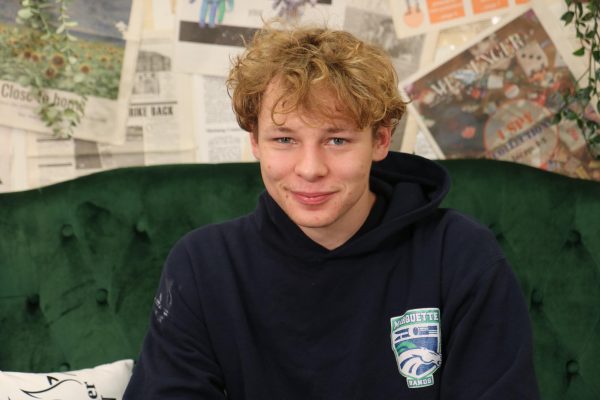
Willem Hummel, Senior is a News Editor for the Marquette Messenger. This is his third year on staff, he has been involved in the Track Team, and Cross...
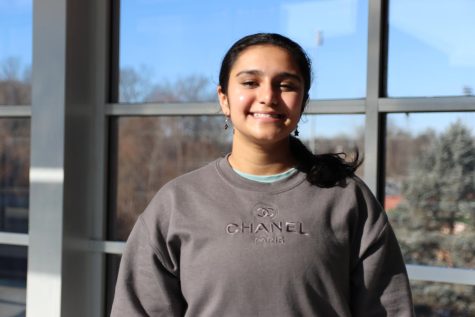
Arpitha Sistla (she/her), senior, is a Co-Online Editor in Chief for the Messenger. This will be her 3rd year on staff. Outside of the Messenger, she is...




